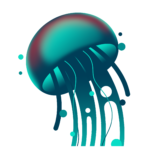
DEFINITION
Critical thinking is a process of questioning opinions, values and their arguments, the vocabulary used and the representation of reality (theory, etc.). The idea is to question the intrinsic quality of information (logical form, rhetoric, documentary richness, resistance to facts, etc.), the source (reliability or authority of the person issuing the information, media, institution, expert, organization, society, etc.), or the extension (degree of universality).
WHY DO WE NEED IT?
Critical thinking is a method of forming a relevant opinion based on knowledge. This principle is therefore essential to be intellectually autonomous. It allows you to have solid convictions, to be effective, to maintain your commitment, to understand strategies and to give an opinion. It also allows you to develop coherent reflections, therefore to propose relevant analyses, which favors the implementation of functional means of fight.
HOW DOES IT WORK?
The willingness to do the right thing is essential. To do this, we must grasp the importance of having an understanding of reality that is as reliable as possible. Critical thinking therefore begins with a functional method of acquiring knowledge. The scientific method seems the best for the moment: hypothesis / protocol / experimentation / meta-studies. We can use this principle in our own analyses.
VERIFYING INFORMATION CAN BE DONE IN THE FOLLOWING WAY:
- {WHO] Author of the information, protagonists staged. By whom, for whom, against whom?
- [WHAT] Nature of the information, characteristics
- [WHERE] Nationality, origin, source of the information
- [WHEN] Chronology of the information, causal links. Anachronisms can be detected.
- [HOW] How information is disseminated. [HOW] Means used (by assertions, arguments or polemical form?), set of methods aimed at reaching the public. Contradictions can be discovered.
[WHY] Motivations of the author of the information (altruism, humanism, manipulation, ideological propaganda, proselytism, lucrative marketing or advertising, need for social recognition…?).
It is then necessary to begin the reflection by setting out the premises (proposals on which the conclusions are based), defining the terms, identifying the issues at stake, and then stating a problem. It is then a matter of verifying the logic of the propositions by identifying possible cognitive biases (deviations of logical and rational thinking from reality) and paralogisms (errors of logic) to verify that the link between the premises and the conclusion is relevant.
In the absence of a reason to think something, it is preferable to suspend judgment. That is, to doubt. Learning about the cognitive biases that everyone is subject to, as well as sophisms and paralogisms, and taking an interest in formal logic are attitudes that help develop one’s critical mind, both to improve the quality of one’s own reflections and to measure the quality of those of others.
Critical thinking works best in contexts where people are open to questioning, humble, pedagogical… In other words: caring. See the page ” BIENEVOLENCE ” ]

Credit: MEDUSES PROJECT
This content was originally created by our Meduse Project partners, reproduced here with their permission and adopted by the Option Végane Canada collective.
